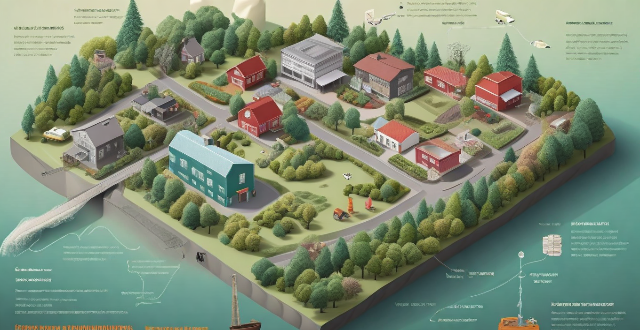Climate change affects the global economy in various ways, including reduced crop yields, water scarcity, forest fires, changes in energy production, human health issues, displacement and migration, and insurance and financial risks. Addressing climate change is crucial for both environmental and economic reasons.

Impact of Climate Change on the Global Economy
Climate change is a global phenomenon that has far-reaching implications for the world's economies. The effects of climate change are diverse and complex, ranging from direct impacts on natural resources to indirect effects on human health and well-being. In this article, we will explore the various ways in which climate change affects the global economy.
Direct Economic Impacts
Agriculture and Food Security
- Reduced crop yields: Climate change can lead to reduced crop yields due to changes in temperature, rainfall patterns, and extreme weather events such as droughts and floods. This can result in food shortages and increased prices, particularly in developing countries where agriculture is a significant source of income.
- Livestock production: Livestock farming is also affected by climate change, with increased temperatures and changing rainfall patterns affecting pasture quality and availability. This can lead to reduced meat and dairy production, further exacerbating food security issues.
Natural Resources
- Water scarcity: Climate change can lead to water scarcity through changes in precipitation patterns, increased evaporation rates, and reduced snowpack melt. This can have significant economic consequences for industries such as agriculture, energy production, and manufacturing.
- Forest fires: Climate change can increase the frequency and intensity of forest fires, leading to significant economic losses through damage to property, infrastructure, and natural resources. Additionally, the cost of firefighting efforts can be substantial.
Energy Production
- Renewable energy: Climate change can affect the efficiency and reliability of renewable energy sources such as wind and solar power. For example, changes in wind patterns or reduced sunlight can reduce the output of these technologies.
- Fossil fuels: Climate change can also affect the extraction and transportation of fossil fuels, with increased temperatures and changing weather patterns potentially disrupting supply chains and increasing costs.
Indirect Economic Impacts
Human Health
- Heat stress: Rising temperatures can lead to heat stress, which can have significant economic consequences through increased healthcare costs and reduced productivity.
- Vector-borne diseases: Climate change can expand the range of vectors such as mosquitoes and ticks, leading to increased incidence of diseases such as malaria, dengue fever, and Lyme disease. These diseases can have significant economic impacts through increased healthcare costs and reduced productivity.
Displacement and Migration
- Climate refugees: Climate change can lead to displacement and migration as people are forced to leave their homes due to environmental factors such as sea level rise, desertification, or flooding. This can have significant economic consequences for both the displaced individuals and the communities they move to.
- Labor market disruptions: The movement of large numbers of people can disrupt labor markets, potentially leading to wage fluctuations and skill mismatches.
Insurance and Financial Risks
- Increased premiums: As climate change leads to more frequent and severe weather events, insurance premiums may increase to reflect the higher risk. This can have significant economic consequences for businesses and individuals who rely on insurance coverage.
- Financial market volatility: Climate change can introduce uncertainty into financial markets, potentially leading to increased volatility and reduced investment confidence. This can have broader economic implications through reduced capital flows and decreased consumer spending.
In conclusion, climate change has far-reaching implications for the global economy, affecting everything from agriculture and natural resources to human health and financial stability. Addressing climate change is not only an environmental imperative but also an economic one, as the costs of inaction could be catastrophic for our global economy.